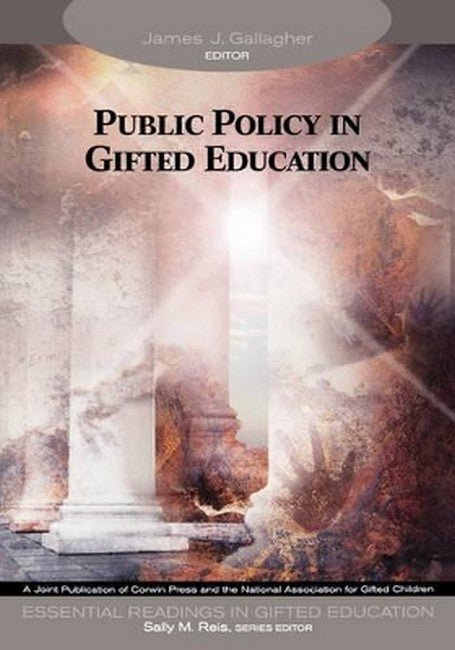James J. Gallagher is a senior investigator at the Frank Porter Graham Child Development Institute at the University of North Carolina at Chapel Hill. He has worked in the field of education of exceptional children for over 40 years. Dr. Gallagher has served as the president of the World Council for Gifted and Talented, president of the Council for Exceptional Children (CEC), and is past president of the National Association for Gifted Children (NAGC). In addition, he is coauthor of a leading textbook, Educating Exceptional Children, with Samuel Kirk and Nick Anastasiow, and coauthor with his daughter, Dr. Shelagh Gallagher, of the book Teaching the Gifted Child. Sally M. Reis is a professor and the department head of the Educational Psychology Department at the University of Connecticut where she also serves as principal investigator of the National Research Center on the Gifted and Talented. She was a teacher for 15 years, 11 of which were spent working with gifted students on the elementary, junior high, and high school levels. She has authored more than 130 articles, 9 books, 40 book chapters, and numerous monographs and technical reports. Her research interests are related to special populations of gifted and tal-ented students, including: students with learning disabilities, gifted females and diverse groups of talented students. She is also interested in extensions of the Schoolwide Enrichment Model for both gifted and talented students and as a way to expand offerings and provide general enrichment to identify talents and potentials in students who have not been previously identified as gifted. She has traveled extensively conducting workshops and providing profes-sional development for school districts on gifted education, enrichment programs, and talent development programs. She is co-author of The Schoolwide Enrichment Model, The Secondary Triad Model, Dilemmas in Talent Development in the Middle Years, and a book published in 1998 about women's talent development titled Work Left Undone: Choices and Compromises of Talented Females. Sally serves on several editorial boards, including the Gifted Child Quarterly, and is a past president of the National Association for Gifted Children.
Request Academic Copy
Please copy the ISBN for submitting review copy form
Description
About the Editors Series Introduction - Sally M. Reis Introduction to Public Policy in Gifted Education - James J. Gallagher 1. The Reform Movement and the Quiet Crisis in Gifted Education - Joseph S. Renzulli, Sally M. Reis 2. Unthinkable Thoughts: Education of Gifted Students - James J. Gallagher 3. Perennial Debates and Tacit Assumptions in the Education of Gifted Children - Laurence J. Coleman, Michael D. Sanders, and Tracy L. Cross 4. Perceptions of Educational Reform by Educators Representing Middle Schools, Cooperative Learning, and Gifted Education - James J. Gallagher, Mary Ruth Coleman, and Susanne Nelson 5. The Effects of the Elimination of Gifted and Talented Programs on Participating Students and Their Parents - Jeanne H. Purcell 6. Precocious Reading Ability: What Does It Mean? - Nancy Ewald Jackson 7. Contributions of Gifted Education to General Education In a Time of Change - Carol Ann Tomlinson and Carolyn M. Callahan 8. Are Teachers of the Gifted Specialists? A Landmark Decision on Employment Practices in Special Education for the Gifted - Joseph S. Renzulli 9. "Being a Teacher": Emotions and Optimal Experience While Teaching Gifted Children - Laurence J. Coleman 10. For the Good of Humankind: Matching the Budding Talent with a Curriculum of Conscience - Carolyn R. Cooper 11. Will the Gifted Child Movement Be Alive and Well in 1990? - Joseph S. Renzulli Index

